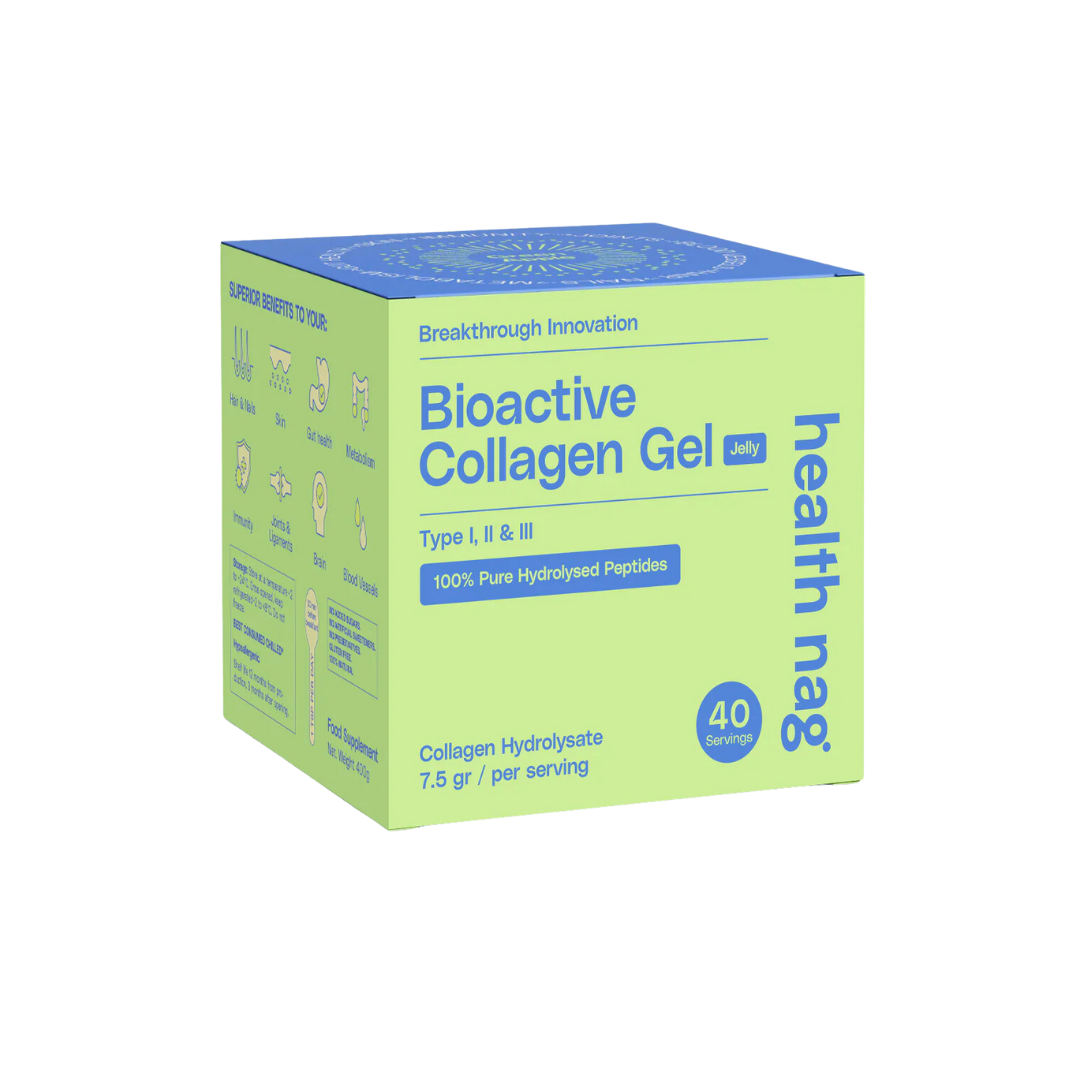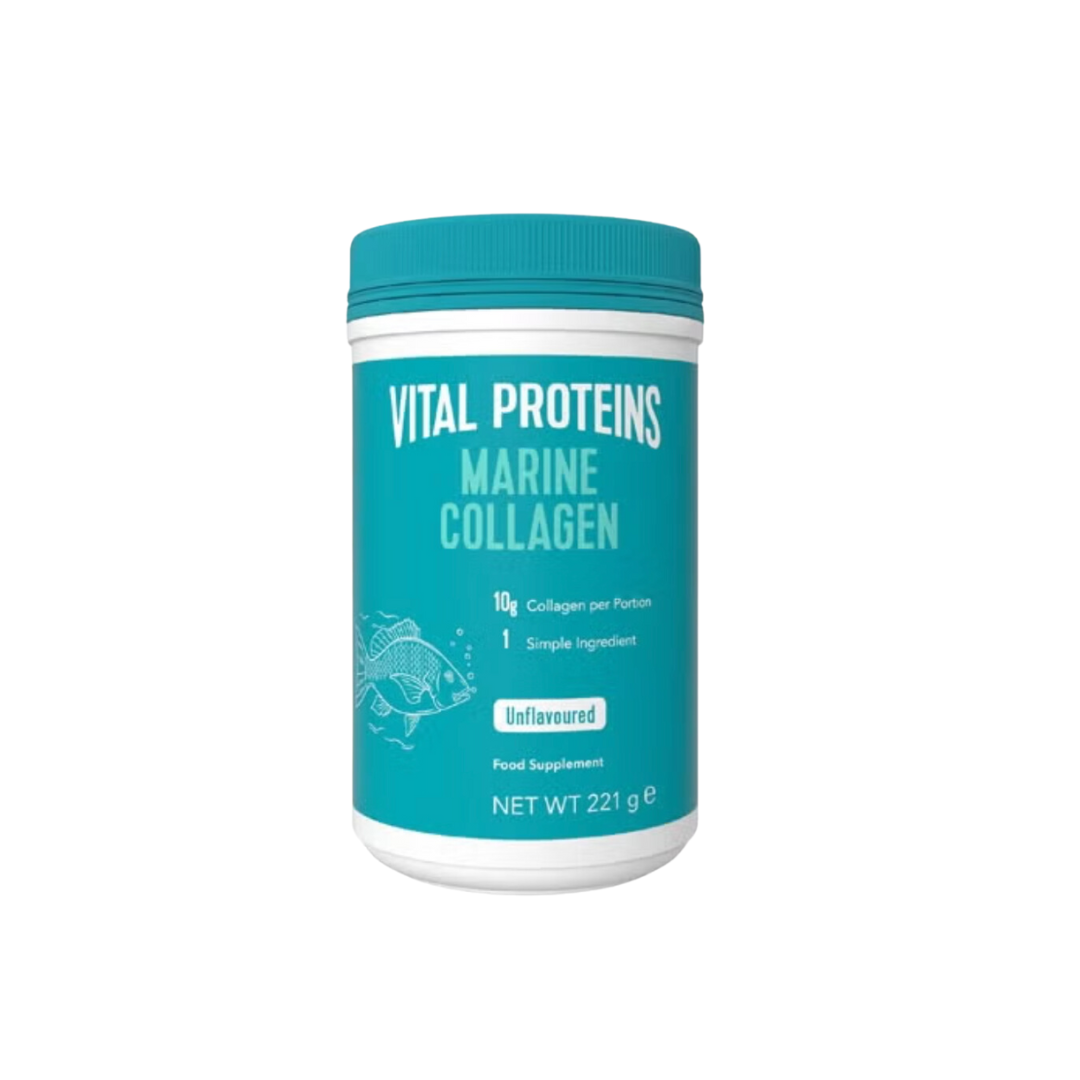
If you’ve been eyeing those glossy tubs of collagen powder, watching influencers chug it like it’s their morning coffee, or wondering if this elusive protein is the secret to glowing skin and healthy joints, you’re in the right place. Here’s everything you need to know about collagen—what it is, why it’s trending, and how to make it work for you.
So, What Exactly Is Collagen?
Think of collagen as the scaffolding that holds your body together. It’s the most abundant protein in the human body, accounting for about 30% of your total protein content. Found in your skin, bones, muscles, tendons, and ligaments, it’s essentially the glue that keeps you from falling apart—quite literally. Collagen is what gives your skin that firm, youthful look and keeps it smooth and supple. But, as we age, our collagen production starts to slow down, leading to sagging skin, wrinkles, and joint discomfort.

In the beauty and wellness world, collagen has earned its reputation as the ultimate anti-ager, but it’s not just about appearance. Collagen supports gut health, improves joint flexibility, and even aids in muscle mass maintenance—making it as much about feeling good as it is about looking good.
The Different Types of Collagen and Why They Matter
Before grabbing the first collagen supplement that catches your eye, it’s important to know that collagen isn’t just one type. There are actually 28 different types, but the ones that matter most are Types I, II, and III.
- Type I Collagen: The superstar of the group, this type makes up 90% of your body’s collagen and is found in your skin, hair, nails, bones, and ligaments. If you’re after youthful, bouncy skin, this is the one to focus on.
- Type II Collagen: Found primarily in cartilage, Type II is your go-to for joint health. If you’re dealing with stiff knees or looking to maintain mobility, this type is essential.
- Type III Collagen: Often found alongside Type I, this type helps maintain skin elasticity and supports the structure of organs and blood vessels, contributing to that radiant, healthy glow.

How Collagen Production Declines and What You Can Do About It
Here’s the less-than-fabulous news: collagen production peaks in your 20s and then declines by about 1% each year after the age of 30. Factors like UV exposure, smoking, a high-sugar diet, and stress can speed up this depletion. This decline in collagen leads to visible signs of aging, such as fine lines, wrinkles, and thinning skin.
So, how do you counteract this natural dip in collagen? Enter collagen supplements. Look for hydrolysed collagen, also known as collagen peptides, which are broken down into smaller, easily absorbable particles that your body can put to work immediately.
Types of Collagen Supplements: Finding Your Perfect Match
Navigating the world of collagen supplements can feel overwhelming, but here’s a quick guide to help you find the best fit:
- Collagen Powders: The most popular form, these powders are tasteless and easily mix into smoothies, coffee, or water. They offer flexibility and can be seamlessly incorporated into your daily routine.
- Collagen Capsules: If convenience is key, capsules are a great option. They’re portable, easy to take, and usually contain a measured dose of collagen peptides.
- Collagen Drinks and Shots: Pre-mixed drinks and shots are gaining popularity for their grab-and-go appeal. Many are enhanced with vitamins and antioxidants for an extra boost.
- Collagen Creams and Serums: While topical collagen can’t penetrate deeply enough to replace lost collagen, it can still help improve skin texture and hydration levels on the surface.
Benefits of Collagen: Beyond Just Skin Deep
So, what can you expect when you start incorporating collagen into your routine? Here’s a look at some of the most significant benefits:
- Improved Skin Elasticity and Hydration: Regular collagen intake can help reduce the appearance of wrinkles and fine lines while giving your skin a hydrated, plump appearance.
- Stronger Hair and Nails: Collagen can help strengthen brittle nails and promote hair growth, making them less prone to breakage.
- Joint Support and Flexibility: If you’re dealing with stiff joints or minor aches, collagen supplements can help keep you moving comfortably.
- Gut Health: Collagen supports the lining of the digestive tract, which can be beneficial for those dealing with gut health issues.
- Muscle Mass and Recovery: Collagen can support muscle repair and recovery, making it a great addition to any fitness routine.
How to Get the Most Out of Your Collagen Supplement
To truly reap the benefits, consistency is key. Most studies suggest that visible results take about 8-12 weeks of daily use. Pair your collagen supplement with a balanced diet rich in vitamin C, zinc, and amino acids to support your body’s natural collagen production.
The Bottom Line
Collagen might not be the literal fountain of youth, but it’s pretty close. Whether you’re looking to boost skin elasticity, strengthen your hair and nails, or keep your joints happy, this powerhouse protein is worth a place in your wellness routine. Choose the form that suits your lifestyle, stay consistent, and enjoy the benefits of a little extra glow, inside and out.
